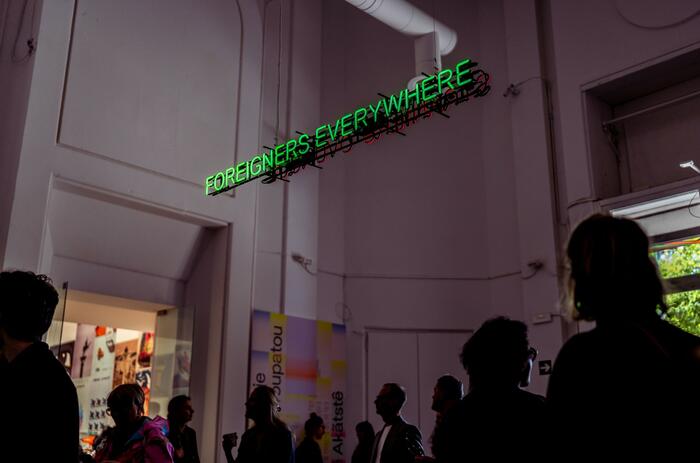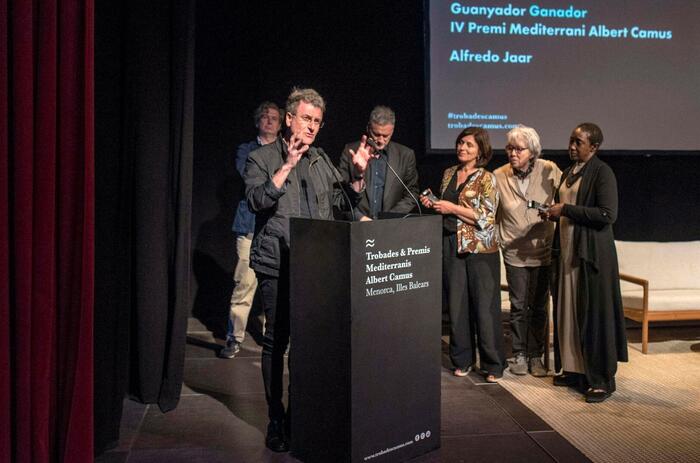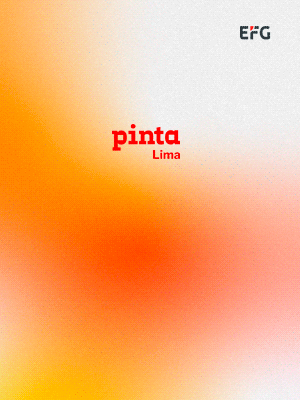EXPLORING THE MULTIVALENT NOTION OF DISPOSSESSION AT THE MAC PANAMÁ
Pies bajo fuego: sobre el espejo (Feet under fire: on the mirror) is the two-part exhibition at MAC Panama. Curated by Miguel A. López, it explores the multivalent notion of dispossession and its forms of representation through a group of video works from the last decade.

Dispossession is understood here as a long historical process that has as one of its beginnings the appropriation of land during the colonial period, which went hand in hand with the destruction, resource extraction and expropriation of the labor force of numerous colonized communities. Many of the works gathered here elaborate on the current consequences of that process that persists in a neoliberal economic model, its aspirations for infinite growth and its anthropocentric and patriarchal perspectives.
The title of the exhibition is taken from Lungiswa Gqunta's video, Pies bajo el fuego (Feet under fire) (2017), which shows the artist's legs swinging over a bed of charcoal lumps. In the pendular movement, the brushes attached to the shoes come dangerously close to the charcoal as if they were trying to set off a spark. A potential fire that alludes to the devastating fires that destroy everything in their path -including fires caused by climate change and the loss of biodiversity.
The twelve works in this exhibition, presented in two parts, composed of blocks formed by pairs of videos in dialogue, delve into the various and contradictory meanings of this concept from different generations and geographies. The videos emphasize aspects such as mining, property, white privilege, land enclosure, forced migration, queer technologies, collective memory, sexual desire, belonging, the future, self-determination and survival.
The twelve works in this exhibition, presented in two parts, composed of blocks formed by pairs of videos in dialogue, delve into the various and contradictory meanings of this concept from different generations and geographies. The videos emphasize aspects such as mining, property, white privilege, land enclosure, forced migration, queer technologies, collective memory, sexual desire, belonging, the future, self-determination and survival.
In contrast to media discourses that present environmental and climate collapse as an event to come, several of these pieces remind us that the crisis is actually a historical process of violence that has been occurring on the planet for hundreds of years –something that theorist Elizabeth Povinelli accurately calls an ancestral catastrophe, where colonial and racial violence was first experienced by numerous indigenous peoples and other colonized communities.
Part One: February 1 to May 19, 2024.
Artists: Seba Calfuqueo, Milko Delgado, Elyla, Lungiswa Gqunta, Elena Tejada-Herrera, and Stephanie Williams.
The first pair, made up of the works of Lungiswa Gqunta (South Africa) and Stephanie Williams (Costa Rica) use an aesthetic of children's play (the swing or the children's story) to elaborate on the history of the territory and postcolonial memory: both evoke a landscape marked by oppression, precariousness and systematic inequity. The works by Seba Calfuqueo (Chile) and Elyla (Nicaragua), included in the second block, propose a queer revision of history, anti-colonial resistances and the impact of miscegenation on the erasure of sexual dissidence. In the third block, the works by Elena Tejada-Herrera (Peru) and Milko Delgado (Panama) highlight the impact of extractive industries and their toxic persistence on bodies, whether through the extraction of heavy metals in the Andes or the banana industry that has marked the history of Central America and the Caribbean.
Second part: May 23 to August 11, 2024.
Artists: Karrabing Film Collective, Sandra Monterroso, Gabriela Novoa, Naomi Rincón Gallardo, Cauleen Smith, and Sin Wai Kin.
The fourth block brings into conversation the work of Karrabing Film Collective (Australia) and Naomi Rincón Gallardo (Mexico), two projects characterized by the construction of psychedelic landscapes that allegorize the forms of toxicity of capitalism. The work of Cauleen Smith (United States) and Sandra Monterroso (Guatemala), presented in the fifth block, explore Afrodiasporic and indigenous feminist utopias through poetic scenarios that evoke both radical generosity and community building, as well as female lineages of authority and power. Finally, the works by Sin Wai Kin (Canada) and Gabriela Novoa (El Salvador) gathered in the final block rehearse forms of anti-patriarchal fantasy and non-normative sexual desire that confront and dismantle society's misogyny and structural racism.









